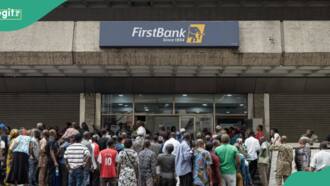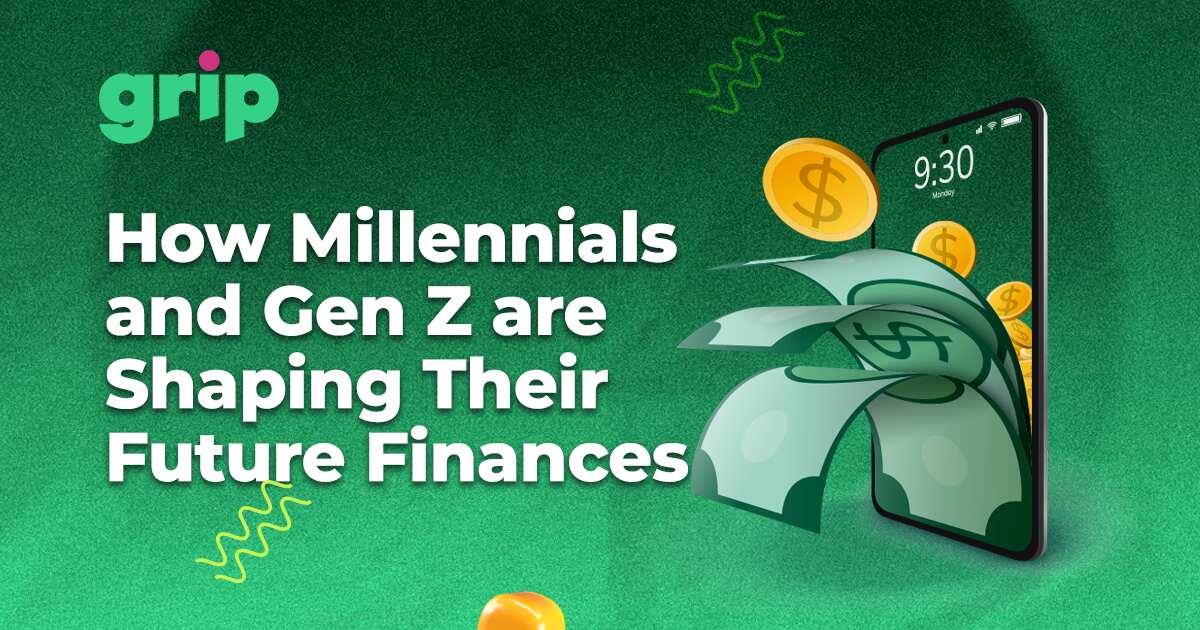Introduction to Financial Preparedness in Younger Generations
Following the Covid-19 pandemic, advancements in technology such as cryptocurrencies, Fintech growth, Artificial Intelligence (AI), geopolitical tensions like the crisis between Ukraine and Russia as well as other world events, the global economy greatly evolved, leading to a change in how money was perceived and handled especially by the Millennials (1981-1966) and Gen Z (1997 – 2012).
Millennials and Gen Zs have experienced a number of economic challenges that has led to them taking on future-ready finances by adopting strategies and mindsets that prepare them to effectively navigate the constantly changing economy to ensure stability.
Unique Financial Challenges Faced by Millennials and Gen-Z
PAY ATTENTION: Сheck out news that is picked exactly for YOU ➡️ find the “Recommended for you” block on the home page and enjoy!

Read also
Airlines eye ‘new frontier’ of AI ahead of global summit
Some of the unique financial challenges faced by Millennials and Gen-Zs includes:
● Rising cost of living
● Long-term debts
● Unemployment/Job insecurity
● Lack of financial literacy
● High accommodation costs
● Economic instability
● High healthcare cost
However, these financial challenges also come with certain opportunities that can improve the financial problems of Millennials and Gen-Zs. Some of which include embracing technological advancements, financial education, leveraging the gig/freelance economy and seeking newer investment opportunities etc as avenues to build a strong financial foundation for the future and secure multiple income streams.
1. Financial Education
Millennials and Gen Zs are increasingly aware of the importance of financial literacy, which covers budgeting, saving, investing, financial planning, and tax literacy. Many educate themselves through online courses on platforms like Coursera, edX, and Khan Academy. Educational institutions also include financial literacy in their curricula, offering workshops and seminars for practical advice and real-life simulations.
2. Adoption of Digital Tools and Fintech Solutions

Read also
“Apply with the link”: First bank announces job vacancy, invites qualified Nigerians to submit CV
This growth in digital banking and fintech has proven to be beneficial for tech savvy younger generations with many of them engaging in side hustles and freelance jobs due to the unstable nature of the economy and job insecurity. This has led to an expansion in their job search with individuals not being limited to their home countries but also bagging gigs from foreign companies and getting paid in foreign currencies.
Some of the reasons why adopting fintech solutions and digital banking by millennials and Gen-Z has been seamless includes:
● Convenience and accessibility: Digital banking platforms run for 24-hours and do not have time restrictions like traditional banks. Users are able to access their funds from any location at any time. Signing up on these digital platforms is also less cumbersome and less time consuming, eliminating the need for paperwork.
● User Friendliness: The on-the go lifestyle of young tech savvy individuals is put into consideration when designing these digital banking platforms with smooth interfaces optimised for mobile devices and designed to make operations convenient and straightforward leading to easier financial transactions.

Read also
N3,600 per 250 kilometre: FG opens another location to buy cheap fuel
● Cost effectiveness: Fintech solutions and digital banks usually have lower fees compared to traditional financial systems including low maintenance fees, better exchange rates and lower transaction fees. These platforms are also upfront with their charges and help users avoid hidden costs.
● Personalisation: With the use of artificial intelligence, users are able to get personalised financial advice based on their needs and activities. Individuals can also set personalised alerts for services like budget and spending tracking, etc.
Other benefits of fintech solutions for users include investment options, enhanced security, and innovative payment solutions.
3. Embracing Alternative Investment and Savings
With the rapid changes in the economy over the past few decades, individuals have been moved to prepare themselves financially. Millennials and Gen-Zs are also more focused on growing their wealth over the increasing fears of an uncertain financial future. This has led to them exploring different investment options by putting money in stocks, crypto and other assets.

Read also
Western Digital displays world’s high-capacity portable HDD, other storage solutions at GITEX Africa
Online applications and platforms have facilitated making these financial investments with some of the features they offer like easy access, educational resources, user friendliness, diversified investment options, low-cost investing, real time data analytics and more.
Millennials and Gen Z’s enjoy several benefits from choosing to start investing early and it also impacts their long-term financial growth. Some of the advantages of early investing includes:
● Compound interest: The goal of every investment is to make money from it. When individuals invest, they are able to earn accumulated interest because their investment was given time to grow exponentially. Small investments can also yield better returns in the long run due to compounding effects. The longer money is invested, the more time it has to grow.
● Starting small: Another benefit of investing early is that it gives individuals opportunities to begin their financial growth with even little funds that they can add to overtime and increase their returns. It ensures steady growth of their money overtime despite market fluctuations.

Read also
Tax leakages: Fintech experts urge FG to revolutionize tax collection process with new technologies
● Reduced risk: The volatile nature of the market gives early investors time to recover from downturns and from fluctuations.
● Growth of financial knowledge: Getting into investments early helps to foster an individual’s financial literacy. It also helps one to develop their saving habits and manage money wisely.
4. Side Hustles and Entrepreneurial Ventures
The gig economy describes a workforce or labour market that engages short-term workers or freelancers for temporary jobs. The financial pressures faced by millennials and Gen-Z’s has led to them seeking alternative income sources and taking on side gigs. Individuals mostly access these gigs through online platforms like Fiverr, Freelancer, Upwork, etc. As opposed to regular employment, gig workers or freelancers get hired to perform tasks for clients or companies on flexible terms rather than under long-term contracts. While there are many upsides to the gig economy like convenience, flexibility, more income, work-life balance and career exploration to name a few, there are also some downsides such as irregular earnings and working hours, lack of employee benefits like paid leave, health insurance, and retirement plans, overworking and burnout. There has been an increase in millennials and gen-zs engaging in the gig economy primarily to supplement their income and also to gain broader work experience.

Read also
African tech startups cater to continent’s needs
5. Using Digital Asset Platforms Like Grip.ng for Future-Ready Finances
Gift cards can be a surprisingly strategic way to be ahead of one’s financial planning by storing savings. They offer security, often in reloadable options, and some platforms even allow you to trade them for cash at a slight discount, turning them into a flexible, short-term investment with a guaranteed return, an example of such is Grip.ng.
Grip.ng is a trusted gift card trading platform that allows users to trade, pay bills, fund wallets and participate in sports betting while having safe and secure transactions. This caters to the needs of tech-savvy millennials and Gen-Zs with increasing interest in their financial security.
Click here to Install.
Overall, by taking advantage of the gig economy to earn additional income with flexible jobs, planning one’s finances and setting aside emergency funds, focusing on ethical investments to make money while staying steadfast to one’s moral and values, making good use of online resources to seek out great investment options and opportunities, embracing cryptocurrency to diversify one’s investment portfolio, and using the innovative solutions provided by Grip.ng’s gift cards, individuals will be well on their way to become financially secure on the long-term.
Source: Legit.ng




